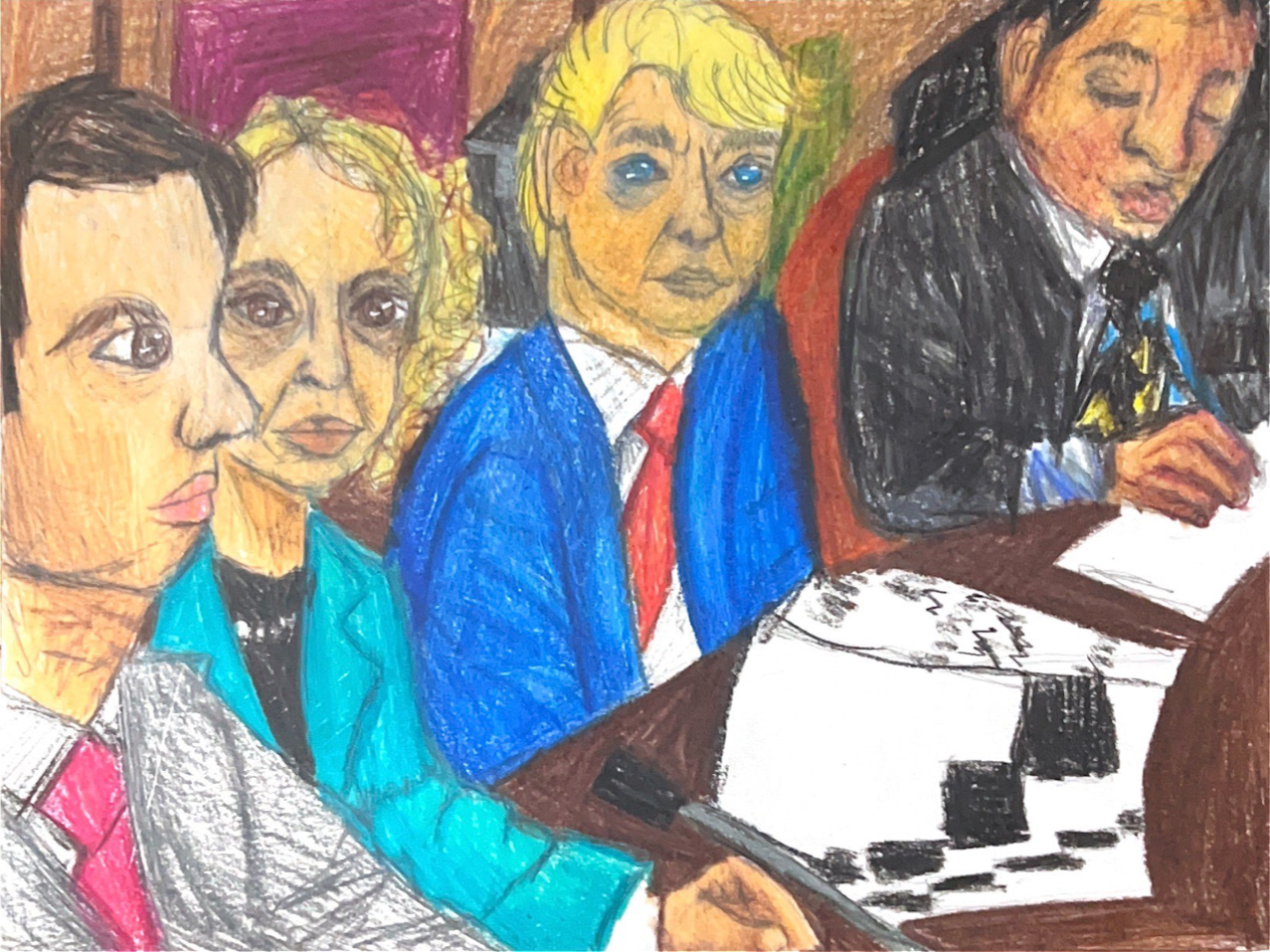
Former President Donald Trump was arraigned on April 4th in New York City related to hush-money payments to an adult film actress with whom he had an extramarital affair, in an event that left an impact on New York City and could prove consequential in his bid for the Republican nomination in 2024. The day concluded with the former President’s return to Mar-a-Lago to deliver a defensive speech.
In a historic 16-page indictment with the first criminal prosecution of a former president in American history, Trump was accused of falsifying business records to conceal damaging information during his presidential campaign in 2016. Due to these actions, prosecutors are claiming that Trump has violated New York corporate record-keeping law repeatedly and willingly broke campaign finance laws. Trump has been charged with 34 felonies, all of which he has pleaded not guilty to. These charges carry the possibility of up to four years in prison, even though judges rarely hand out such a sentence for these offenses.
In anticipation of his arrival, the city prepared for any potential protests and confrontations. Mayor Eric Adams, hearing that Republican Rep. Marjorie Taylor Greene in particular was helping to organize a protest the day of the arraignment, made an unusual call-out where he said: “Although we have no specific threats, people like Marjorie Taylor Greene, who is known to spread misinformation and hate speech, she’s stated she’s coming to town,” Adams continued, “while you’re in town, be on your best behavior.”
When President Biden was asked to comment on any potential unrest in New York, the president replied, “No, I have faith in the New York Police Department.”
When asked about her thoughts on Trump’s arrest, Senior Sofia Zago said, “I think it’s pretty silly because Trump is obviously not the best person and the fact that he’s pleading not guilty after being arrested just shows how immature and childish he is.”
Eighth-grader Lila Bussandri expressed a similar belief, voicing, “I think that he deserved it.”
On the day of the arraignment, April 4, hundreds of viewers, protesters, and a few politicians gathered in Collect Pond Park, across the street from the criminal courthouse where proceedings would be held. Barricades were set up to separate the Trump supporters from the protesters, and police occasionally had to intervene. Whistles and jeers overwhelmed the remarks by Rep. Greene while cheers came from the pro-Trump side. Greene then had to make a fast exit as members of the press jostled to be near her.
Trump surrendered and was placed under arrest before heading to the courthouse for his arraignment where barely anyone managed to catch a glimpse of him.
The main element in these charges relates to the $130,000 payment made by Trump’s former lawyer, Michael Cohen, to porn star Stormy Daniels shortly before the 2016 election to avoid having her speak out on the allegations of their affair in 2007. In 2017, after becoming president, Trump met with Cohen, and for the following ten months, where he began to send him checks at first from a family trust and later from his personal bank account. These payments were labeled as legal fees, but Cohen states they were reimbursements from the hush–money payments.
The prosecution states, “The payment records, kept and maintained by the Trump Organization, were false New York business records. In truth, there was no retainer agreement, and Lawyer A was not being paid for legal services rendered in 2017. The Defendant caused his entities' business records to be falsified to disguise his and others' criminal conduct.”
However, Trump’s lawyers argue that since the checks were not charged to Trump’s businesses, they should not be classified as business records even though they happened to pass through the Trump organization or were handled by its personnel. If successful, the charges have the possibility of being lowered to misdemeanors, which would be a victory for Trump. Such a move would lower the possibility of prison and could delay the trial, to his benefit.
Another challenge was the case of the felony charges against Trump. Falsifying business records in itself is a misdemeanor, and only becomes a felony if “the defendant falsified the records to obscure a separate crime.” Manhattan district general Alvin Bragg has supported this with the violation of election laws and Cohen’s 2018 guilty plea to two federal campaign finance crimes. Trump’s attorneys publicly stated that “this state-law offense cannot be piggybacked on a federal-law crime.”
Afterward, Trump returned to his Mar-a-Lago residence where he delivered a speech that lasted under 30 minutes to his supporters. Trump stated that he was being unjustly persecuted by the prosecution and that "The only crime that I have committed is to fearlessly defend our nation from those who seek to destroy it.”
Moving forward, New York Judge Juan Merchan gave the defense a deadline of August 8 to file motions, and the prosecution has until September 19 to respond. New York prosecutors want a trial to begin in January 2024, and Judge Merchan said it would be "difficult to anticipate" if Trump’s lawyers would be ready for a January trial but the goal is to "move ahead as expeditiously as possible, without undue delay."
The Léman community also gave their views on Trump’s prospects for the 2024 election following his arrest and future trial.
Freshman Kyla Francis had this to say, “he's a bigot and misogynistic, and should not be receiving the support that he is."
History teacher Mr. Sweeney also gave his stance on the subject: "It's about time that he's held accountable for the things that he has done in the past. I am hoping that his indictment will ultimately lead to less support for him as a candidate in the 2024 presidential election.”